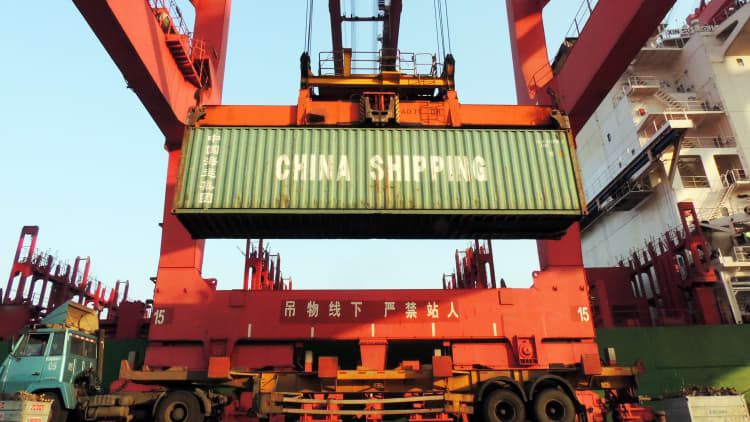
China's exports slumped more than expected in December as global trade remained sluggish while the growth in imports also cooled, official data showed Friday.
For the month, exports decreased 6.1 percent on-year in dollar-denominated terms, compared with a 0.1 percent increase in the previous month, Reuters reported on Friday, citing official data. Imports meanwhile rose 3.1 percent from a year ago, down from November's 6.7 percent growth. December's trade balance stood at $40.82 billion, versus $44.61 billion in the previous month.
A Reuters poll of economists had expected exports to fall 3.5 percent, imports to rise 2.4 percent and the monthly trade surplus to hit $46.50 billion.
For 2016, Chinese exports dropped 7.7 percent on-year, the worst fall since 2009, according to Reuters. Imports declined 5.5 percent. That left the world's second-largest economy with a 2016 trade surplus of $509.96 billion. In yuan terms, 2016 exports dropped 2 percent on-year, while imports picked up 0.6 percent.
Rising costs and weakening advantages in low-end sectors will hinder China's foreign trade performance this year, warned a spokesperson from the customs department, Reuters said. But the country can handle the challenges, the spokesperson continued.
Despite the dismal figures, Friday's data was nothing to be concerned about, Shen Jianguang, Greater China chief economist at Mizuho Securities Asia, told CNBC's "Street Signs."
The 6.1 percent drop in Dec exports wasn't so bad once the near 10 percent increase in Chinese annual wages as well as the yuan's relative strength against most currencies, excluding the dollar was factored in, he explained.
Friday's trade figures came against the backdrop of renewed gyrations in the Chinese yuan this year, which have revived concerns over capital outflows.
In the wake of U.S. president-elect Donald Trump's win, the yuan fell to nearly eight year lows against the dollar, touching its weakest level since January 2009, amid renewed strength in the dollar. A weaker currency makes Chinese products more attractive in overseas markets, and the recent plunge helped explain November's strong export performance.
But the past week has been a turbulent one for the Chinese currency, which first weakened, then unexpectedly rose before retracing gains.
Friday's report, as well as Chinese full-year gross domestic product due on Jan.20, will be the last indicators before Trump's administration takes over, a move that has the potential to alter the global growth environment, Leland Miller, president of China Beige Book International, told CNBC's "Squawk Box."
China's export growth will be limited if Trump unveils protectionist measures, Reuters quoted Chinese officials as saying on Friday. "China is the biggest loser in the anti-globalization trend," officials noted.
The strong reaction from mainland officials was warranted, according to Mizuho's Shen.
Global protectionism is on the rise and will enhance trade risks going forward, he noted. Because Beijing has been one of the biggest winners of globalization, the government is concerned about Trump's administration, he added.

